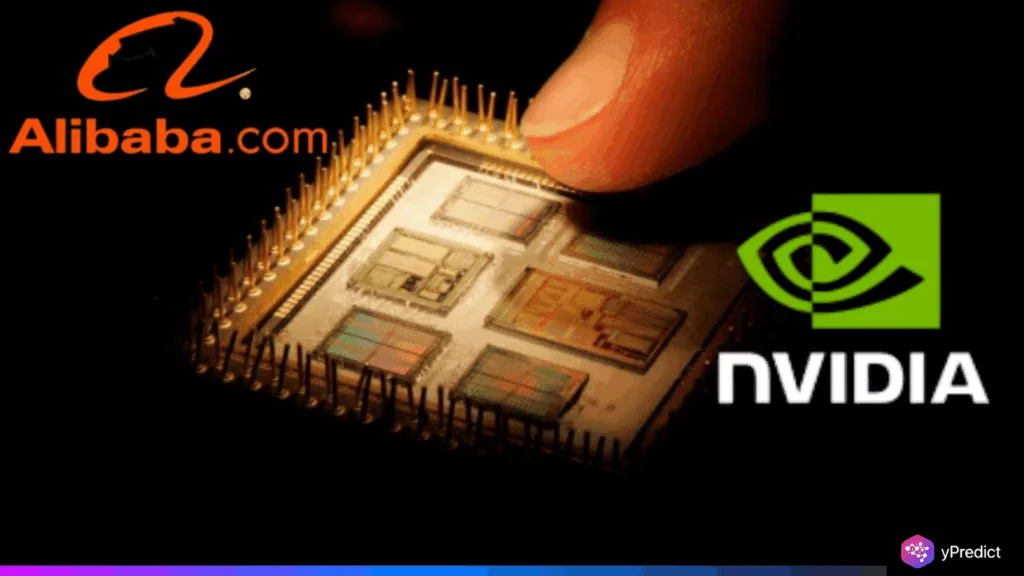
Nvidia’s shares fell following last week’s decline on concerns about supply uncertainties and tech tensions between the US and China. Jensen Huang’s company still controls the majority of AI hardware, but competition is putting more pressure on it. Alibaba’s announcement of a domestic AI chip indicates a shift in approach to lessen dependency on US technology. Thus, as global chip competition heats up, this move may change market sentiment.
Nvidia Struggles To Maintain Its Strong Momentum
Due to the strong demand for its AI accelerators, Nvidia recently produced exceptional quarterly results. Nvidia has also had trouble delivering some of its flagship products. This is a result of the US ban on exporting advanced chips to China. Consequently, these limitations remain a major obstacle, causing apprehension regarding prospective future revenue streams from the Chinese market.
Additionally, tech stocks have continued to suffer from the tension between Washington and Beijing. Nvidia is at greater risk as lawmakers tighten rules governing the shipment of AI hardware. Additionally, policy obstacles and technological disagreements may harm the company’s long-term prospects, according to economists.
Will Alibaba’s AI Chip Strategy Disrupt Global Players?
Alibaba’s introduction of a new AI chip marks a sea change in the semiconductor market. The chip, designed for inference tasks, is a calculated move toward computing infrastructure self-sufficiency. Additionally, due to increasing restrictions on chip exports, China is attempting to reduce its dependency on American companies.
Experts predict that Alibaba’s action will encourage the domestic use of regional processors, endangering Nvidia’s hegemony in a sizable emerging market. Beijing’s overall objective of leading AI innovation is mirrored in the secrecy surrounding performance comparisons. Therefore, it might increase chip competition if it succeeds, forcing players around the world to quickly adjust.
Alibaba’s strong cloud performance demonstrates its dedication to investing in AI. The company wants to incorporate its processors into a larger ecosystem that involves growing infrastructure projects and notable revenue gains. Additionally, this strategy might improve efficiency for business clients and change the way cloud services are priced.
Are Global AI Chip Leaders Ready For Local Rivals?
Nvidia is requesting restricted permissions to export chips that have been altered to China. But it appears that the process is taking a long time. The result will dictate the amount of money the business can recoup from its second-largest market. As domestic companies like Alibaba expand their chip portfolios, performance gaps should eventually close. Additionally, global players find it more challenging to rely on a single supply chain as tech tensions increase.
A Shifting Balance in AI Hardware
The competition between Chinese and American businesses has signaled the start of a new phase in the global chip war. Nvidia’s leadership in advanced processors faces its most difficult challenge yet, as chip competition increases and regulatory risks persist. Alibaba’s innovation shows how quickly markets can adapt to geopolitical challenges. The industry is also undergoing significant changes as a result of the two sides’ competition for control of the AI infrastructure. Furthermore, how successfully Nvidia can hold onto its market share will be revealed in the coming months. However, as tech tensions increase, regional rivals might step up.






